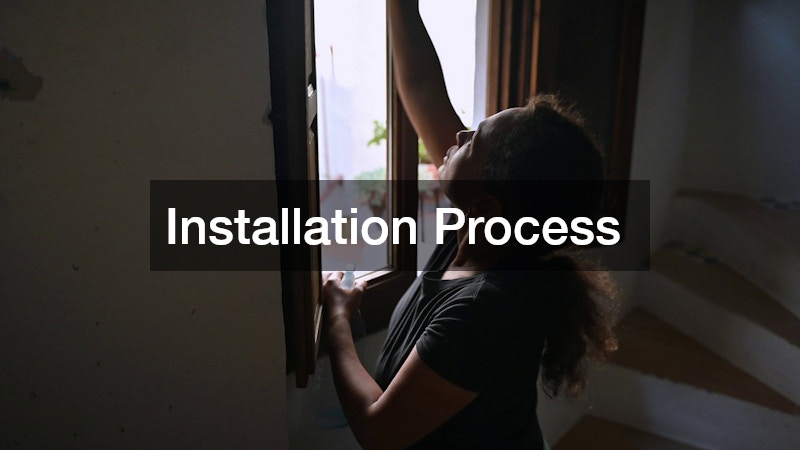The involvement of professionals ensures that window upgrades are not only about aesthetics but are strategically planned to increase energy efficiency. With advancements in window technology, contracting a skilled professional has become more valuable than ever. Therefore, the role of window contractors in improving home energy efficiency cannot be overstated.
The Benefits of Upgrading Your Windows for Energy Efficiency
Cost Savings
Upgrading your windows to energy-efficient models can lead to significant cost savings. These windows are designed to minimize air leakage and provide better insulation, directly lowering heating and cooling expenses.
In the long run, the reduction in energy consumption can result in substantial financial savings, making window upgrades a worthwhile investment.
Energy-efficient windows often come with features like multiple glazing, low-emissivity coatings, and gas fills, which enhance performance. By reducing the dependency on HVAC systems, these windows decrease energy bills. Homeowners can expect to recoup their investment through these consistent savings over time.
Moreover, many local and federal programs offer incentives or rebates for energy-efficient home improvements. By installing qualified windows, homeowners may be eligible for tax credits or discounts. This financial support further amplifies the cost-effectiveness of window upgrades.
Increased Comfort Levels
Energy-efficient windows do more than just save money; they greatly enhance indoor comfort by maintaining consistent temperatures. High-quality windows reduce drafts and the cold spots often felt with older, inefficient windows. They regulate indoor climates efficiently, making the home environment more pleasant throughout the year.
Advanced glazing and insulating technologies work to prevent uncomfortable heat gain during summer and heat loss during winter. By doing so, they help in keeping the indoor temperature stable regardless of the weather outside. Such temperature regulation also contributes to a healthier indoor environment, free from excessive humidity or dryness.
Additionally, modern windows often provide better soundproofing, contributing to a quieter and more comfortable living space. This helps improve the well-being and satisfaction of the home’s occupants. Overall, comfort levels are significantly enhanced by replacing old windows with energy-efficient counterparts.
How a Window Contractor Helps in Selecting the Right Windows
Understanding Window Ratings
Window contractors play a crucial role in deciphering window ratings, which are pivotal in selecting the right products for energy efficiency. Important ratings like the U-factor and Solar Heat Gain Coefficient (SHGC) determine a window’s insulation capacity and solar gain reduction, respectively. Knowledgeable contractors help homeowners understand these numbers and select windows that match the specific energy requirements of their homes.
A low U-factor indicates excellent insulation properties, ideal for colder climates, while the SHGC measures solar energy transmittance, better suited for warmer regions. A contractor can help balance these factors to suit the homeowner’s climate and personal preferences. Their expertise ensures the installation of windows that optimize energy efficiency while meeting the homeowner’s aesthetic needs.
Furthermore, contractors guide homeowners through various certification programs, such as ENERGY STAR, which can further simplify the selection process. ENERGY STAR-rated windows are confirmed to meet strict energy performance criteria. By selecting such certified options, homeowners can be confident in their windows’ energy performance and durability.
Material and Design Choices
When it comes to choosing windows, the variety of materials and designs can be overwhelming for homeowners. This is where a window contractor’s expertise becomes invaluable. They provide insights into the benefits and drawbacks of different materials such as vinyl, wood, aluminum, and fiberglass.
Each material offers various advantages, such as durability, cost-effectiveness, and energy efficiency. For instance, vinyl windows are often praised for their low maintenance and high energy efficiency, while wood windows offer superior aesthetics with decent insulating properties. Contractors help navigate these options to find the best fit for the homeowner’s style, budget, and efficiency goals.
In addition, contractors offer guidance on window designs, from double-hung and casement to awning and sliding models. The design can affect how well a window performs in terms of insulation and ventilation. Professionals evaluate these factors and align design choices with individual homeowner needs and architectural styles.
The Steps Involved in Window Replacement
Assessment and Planning
The process of window replacement begins with a thorough assessment and planning. A window contractor first evaluates the current windows to identify inefficiencies and insulation gaps. This step is crucial to develop a strategy that aligns with energy efficiency goals and maximizes the benefits of new window installations.
Contractors perform detailed inspections to determine the best window types, materials, and placements. They consider factors like orientation, local climate conditions, and home architecture to make informed recommendations. The outcome is a comprehensive replacement plan tailored to achieve peak energy performance.
Proper planning also involves budgeting and scheduling, setting realistic expectations for homeowners. Contractors discuss timelines and costs upfront to ensure transparency throughout the process. This helps homeowners prepare adequately for the window upgrade while understanding its energy efficiency potential.
Installation Process
The installation process is critical to realizing the expected energy efficiency benefits. Professional contractors ensure precise installation, maintaining the integrity of energy-efficient features. Quality installation prevents air leaks and ensures that windows function as intended in terms of energy savings and longevity.
Installation involves removing old windows carefully to minimize damage to the surrounding areas. New windows are then installed with attention to sealing and insulation to prevent energy loss. Contractors utilize industry best practices to ensure that every component is fitted optimally for peak performance.
Hiring a skilled window contractor is a wise investment for any homeowner seeking to reduce energy bills and improve comfort. With their assistance, homes can achieve better energy efficiency, contributing positively to both the environment and household budgets. As a result, window contractors are pivotal in the journey towards a more sustainable and comfortable home environment.




